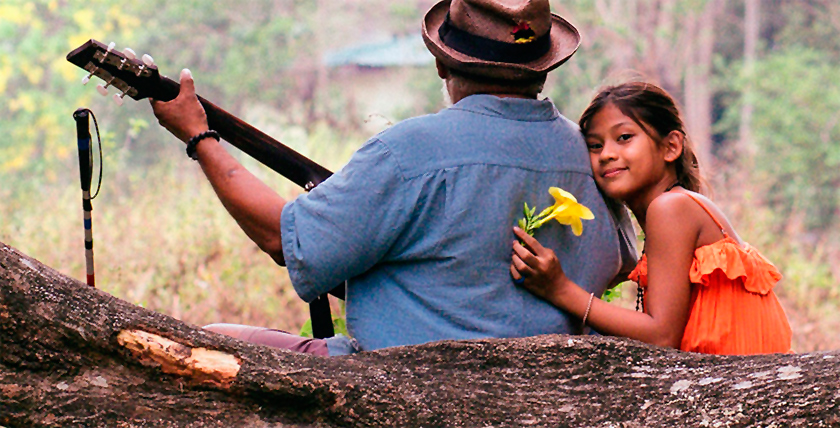There is the phrase, “appearances can be deceiving,” and this may best describe many people’s perception of poverty, especially when it may define the image of a particular place or country. Having been born and raised for a few years in the Philippines, I was never aware of my country as being a “less fortunate” one. But even as I grew up and I became aware the Philippines did have economic and political instabilities which kept many living in poverty, return trips to visit family never impressed upon me the woeful image many abroad held for the people living in makeshift shacks on squatted land; to this day I see commercials by non-profit organizations asking for support in the aid of children earning their living rummaging through trash on a once smoldering pile of refuse known locally as “Smokey Mountain.” No matter what the world may see when they gazed at those intentionally heart-rending (read: manipulative) depictions, I knew the Filipino spirit was more vibrant, indomitable, and selfless than in many countries to which those non-profits appealed.
At first glance, Hasei Kohki’s Blanka may be the kind of movie which takes the point of view of treating the subject of poverty as something to be pitied. But appearances can be deceiving. The movie tells the tale of Blanka, an 11-year-old girl surviving in Manila by begging and stealing from tourists. One day, she hits upon the idea of raising the quality of her life by buying a mother, but the effort to obtain the money to do so proves far more difficult. That is until she meets a old, blind street musician who teaches her how to sing, a skill she can use to finally make the money she needs. Concerned for her future, however, the musician decides to take Blanka to an orphanage, and when she finds out, she runs away.
Rather than focusing on the misery of Blanka’s existence for dramatic affect (certainly a style used powerfully by other filmmakers), Hasei instead decides to use his own experience of living and visiting the Philippines over many years to draw attention not on the situation, but on the way a young girl can exist in such conditions and still remain joyful and vibrant in spite of it. In an interview with Inquirer.net, Hasei recounts a life altering encounter the first time he visited the Philippines when “[the] young boy who sold him cigarettes, asked why he was so pale and haggard [during a bout with an gastrointestinal infection]. Through mime, Hasei got him to understand what he’d been through. The little cigarette vendor turned out to be an unlikely Good Samaritan, buying him an energy drink and an antidiarrheal tablet. Hasei was deeply moved by this kindness from one who had so little in life. His experiences over the past decade in Manila’s urban blighted communities have shown him that such kindness was more common than rare.”
Hasei’s positive reminder of the things money can’t buy as well as our lost youth when we didn’t care about rich or poor, but approached life with wonder and joy has played at many film festivals worldwide including the 2015 Venice International Film Festival (where it took home the Sorriso Diverso Award and the Lanterna Magica Award) and the 21st Kolkata International Film Festival (where it won the NETPAC Award). Released in various markets internationally, it finally secured a limited Japanese release in June of 2017.

